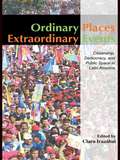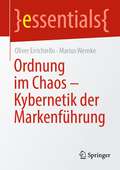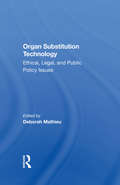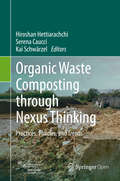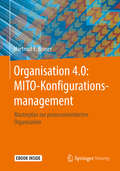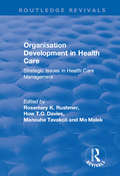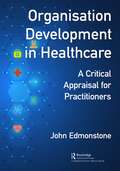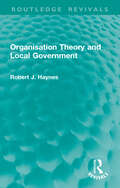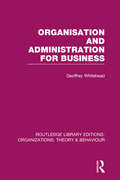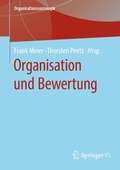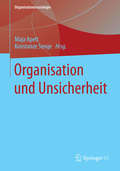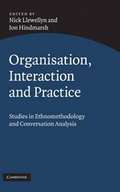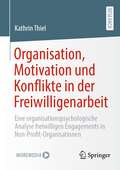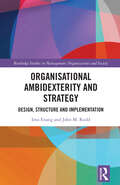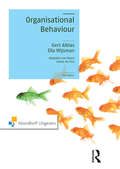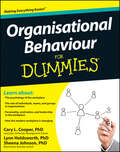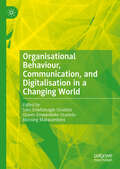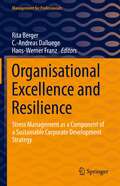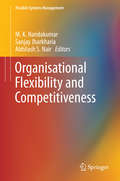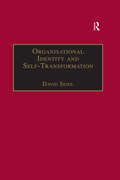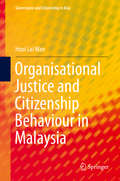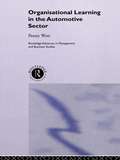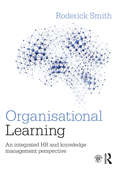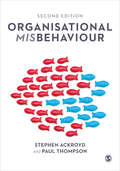- Table View
- List View
Ordinary Places/Extraordinary Events: Citizenship, Democracy and Public Space in Latin America (Planning, History and Environment Series)
by Clara IrazábalClara Irazábal and her contributors explore the urban history of some of Latin America’s great cities through studies of their public spaces and what has taken place there. The avenues and plazas of Mexico City, Havana, Santo Domingo, Caracas, Bogotaì, SaÞo Paulo, Lima, Santiago, and Buenos Aires have been the backdrop for extraordinary, history-making events. While some argue that public spaces are a prerequisite for the expression, representation and reinforcement of democracy, they can equally be used in the pursuit of totalitarianism. Indeed, public spaces, in both the past and present, have been the site for the contestation by ordinary people of various stances on democracy and citizenship. By exploring the use and meaning of public spaces in Latin American cities, this book sheds light on contemporary definitions of citizenship and democracy in the Americas.
Ordnung im Chaos – Kybernetik der Markenführung (essentials)
by Oliver Errichiello Marius WernkeDie Kybernetik ist eine Wissenschaft, um Informationen zu verstehen und systematisch zu nutzen. Als Thema der Kybernetik wird die Marke gerade in Zeiten der Beschleunigung und der unendlichen, globalen Warenmärkte zunehmend wichtiger. Denn Bestand hat nur, wer vermag, sein Muster im Zeitalter der Veränderung zu bewahren und immer wieder an die Erfordernisse der Zeit anzupassen. Dabei helfen weder Kundendaten noch kreative Ideen, sondern eine fundierte Kenntnis der strukturellen Funktionsweise aller Lebewesen – organischer und sozialer. Durch die Zusammenführung von Markensoziologie und Management-Kybernetik werden in diesem essential die unsichtbaren sozialen Anziehungskräfte verdeutlicht. Indem die übergreifenden Dynamiken aller (lebenden) Systeme dargestellt werden, lassen sich universelle Erkenntnisse gewinnen und planvolle Strategien entwickeln.
Organ Substitution Technology: Ethical, Legal, And Public Policy Issues
by Deborah MathieuThis book describes and assesses some of the more important difficulties and defects in the current utilization of organ substitution technology, dealing with the major ethical, legal, and public policy issues of organ substitution.
Organic Waste Composting through Nexus Thinking: Practices, Policies, and Trends
by Hiroshan Hettiarachchi Kai Schwärzel Serena CaucciOrganic waste composting is another excellent example to demonstrate the power and the benefits of nexus thinking. Even though organic waste composting itself is not a new topic, those who want to start a new project or align an ongoing project with nexus thinking, find it difficult to gather the necessary information. With nine case studies from four continents, this book aims to fill above gap in literature. While current literature on composting is often found to be limited to either soil/agriculture sector or waste management sector, this book presents a combined point of view. This open access book starts with an introductory chapter that describes the need to bring the waste management aspects and soil nutrient management aspects of compost production into one integrated theme. The relevance of nexus thinking and the Sustainable Development Goals (SDGs) are also presented in this introduction. The first three chapters after the introduction covers composting from the solid waste management and its policy aspects, taking examples from three developing countries. The next three examples are mostly about the benefits composting can provide to the soil and agriculture. These examples are also from three developing countries, but with a mixture of urban as well as rural settings. Last three chapters present more insight into the latest developments taking examples from Europe, as well as new methods adapted from the traditional styles from Africa.
Organisation 4.0: Masterplan zur prozessorientierten Organisation
by Hartmut F. BinnerWie Unternehmen die Herausforderungen, mit denen sie konfrontiert sind, erfolgreich managen können, beschreiben unzählige Ratgeber.Dieses Buch stellt im Detail den Weg dorthin, das „Wie“, in den Vordergrund. Der Autor verfolgt dabei einen ganzheitlichen, prozessorientierten Ansatz der Organisationsentwicklung.In dem Buch wird der Weg von einer funktionsorientierten hin zu einer prozessorientierten Organisation detailliert und anhand von vielen Anwendungsbeispielen beschrieben. Der Autor stellt Modelle, Methoden, Vorgehensweisen und Tools für die Umsetzung vor. Das MITO-Modell mit seinem Methoden-Tool als generischem Methodenbaukasten wird umfassend erläutert. Bezugspunkt für das Changemanagement ist dabei nicht die vertikale, also hierarchische Organisationsstruktur, sondern, ausgehend von einer rollenbasierten Ordnungsstruktur, die horizontale Wertschöpfungskette. Erst aus dieser detaillierten rollenbasierten Beschreibung des End-to-End-Businessprozesseses ergeben sich die Prozessaufgaben und Prozessverantwortlichkeiten. Dies wiederum ermöglicht eine hohe Datendurchgängigkeit für die Prozessdigitalisierung mit neuen Technologien wie Cloud Computing, Enterprise Mobility, Social Business, Big Data in der Organisation 4.0.In dem Buch werden alle Fragen rund um das gemeinsame Führungsverständnis in einer prozessorientierten Organisation besprochen. Auch der Aufbau einer gemeinsamen Wissens- und Lernplattform zur Qualifizierung von Führungskräften und Mitarbeitern wird behandelt. Wie lassen sich Prozesse systematisch beschreiben und im Rahmen eines ganzheitlichen Business Process Management (BPM) umsetzen? Wie können funktionsorientierte Veränderungs-, Anforderungs- und Auswirkungsanalysen durch prozessorientierte Analysen ersetzt werden? Wie lässt sich eine prozessorientierte Organisation evaluieren? Das Buch analysiert diese und weitere Fragen systematisch und detailliert und vermittelt Führungskräften nicht nur das notwendige Wissen, sondern auch die Methodenkompetenz, um Changemanagement-Prozesse umzusetzen.Ob Mittelstand oder Großunternehmen – das Buch richtet sich an alle Führungskräfte in Unternehmen, die sich mit Changemanagement auseinandersetzen.
Organisation Development in Health Care: Strategic Issues in Health Care Management (Routledge Revivals)
by Huw T.O. Davies Mo MalekThis title was first published in 2002: Health systems across the globe face similar problems: controlling costs while maintaining or improving health care quality and access. Notwithstanding the unprecedented health system reforms of the past decades, many outstanding problems remain in these areas. Drawing on experts from Europe and America this eclectic collection of leading edge research examines the impact of organizational development on improving quality and efficiency in health care. A series of chapters provide accounts of organizational reconfiguration in the UK and elsewhere. The contributors examine how structural and procedural changes must be matched by the development of human resource services if increases in efficiency and effectiveness are to be achieved. The book will be of interest to health care academics, policy makers, managers and practitioners who are interested in keeping abreast of the latest developments in health care research.
Organisation Development in Healthcare: A Critical Appraisal for OD Practitioners
by John EdmonstoneOrganisational development (OD) as a practice involves an ongoing, systematic process of implementing effective organisational change. OD is both a field of applied science focused on understanding and managing organisational change and a field of scientific study and inquiry. It is interdisciplinary in nature and draws on sociology, psychology, particularly industrial and organisational psychology, and theories of motivation, learning, and personality. Organisation Development in Healthcare: A Critical Appraisal for Practitioners provides both an overview of the evolution of OD in healthcare as a field of practice and as a challenge to its future development. It examines the underlying assumptions behind OD and tracks its historical growth in healthcare, with special attention devoted to the UK’s National Health Service. The unusual nature of healthcare organisations delivering human services through the work of professionals who are subject to emotional labor and are addressing society’s wicked problems provides a unique context. A range of challenges for healthcare OD are identified, including questions of conformists or deviant innovation; organisations as machines or systems; hierarchy versus democracy; the importance of power and emotion and possible future ways forward for healthcare OD are suggested. Examples and short case studies from both the UK and the US to illustrate the benefits of OD are included.
Organisation Studies and Human Resource Management: An Educator's Handbook
by Kate BlackThis book advances educational understanding and practice in Organisation Studies and Human Resource Management (OSHRM). It develops new theoretical perspectives on learning in OSHRM and introduces and evaluates a range of educational approaches, methods and techniques to advance teaching and assessment and student learning in the field. Chapters are evidence-based and provide practical advice for enhancing the effectiveness of OSHRM programmes and courses in universities, colleges and human resource development settings globally. With contributions from leading educators in OSHRM, the book both advances understanding and provides practical guidance for the design of programmes, courses and classes. Importantly, it illustrates innovative classroom and virtual learning experiences that will secure student engagement; cultivate critical and creative thinking; and enhance students’ employability, leadership and enterprise capabilities. A distinctive contribution of the book lies in the inclusion of student viewpoints on the understandings and educational advances proposed by the authors. Significantly, the book demonstrates how recent changes affecting higher education, such as globalisation, mass participation and marketisation, and, most recently, the pandemic crisis, can be embraced as opportunities to advance both educational understanding and educational policy and practice in OSHRM. This book will be invaluable for university educators internationally in the fields of OSHRM and for HR developers working in management and leadership development, and the book has relevance to both groups whatever their career stage, from absolute beginners through to advanced practitioners.
Organisation Theory and Local Government (Routledge Revivals)
by Robert J. HaynesOriginally published in 1980, this book provides an analysis and assessment of events in local government management during the late 20th Century set within an overall conceptual framework of organisation theory. The book fills the gap between theoretical prescription and practical management application. The analysis focuses on three areas of organisation design and functioning – the structural, the procedural and the cultural. In each of these areas the interrelationship between broad theoretical prescriptions and the actual management innovations introduced in local authorities is examined. A major portion of the book is devoted to an assessment of the importance of behavioural/cultural factors in the introduction and assimilation (or rejection) of managerial change, an aspect of organisational functioning which was neglected in the literature on local government management.
Organisation and Administration for Business: Organizations: Organisation And Administration For Business (Routledge Library Editions: Organizations)
by Geoffrey WhiteheadThis book provides a comprehensive introduction to business organisation and administration. Written in a straightforward, readable style this textbook covers all the major aspects of the subject. Starting with the organisational background it goes on to cover the functions of the important departments within the firm, the role of the administrative officer, and other areas of knowledge vital to the smooth running of a business. There are self-assessment questions at the end of each section, past exam questions, study and exam tips and a full index.
Organisation und Bewertung (Organisationssoziologie)
by Frank Meier Thorsten PeetzOrganisationen spielen für viele Bewertungsprozesse eine entscheidende, aber oft übersehene Rolle: Sie geben den Kontext ab, in dem Bewertungen vollzogen werden, sie produzieren und kommunizieren Bewertungen und werden schließlich auch selbst regelmäßig bewertet, evaluiert, geratet und gerankt. Die Beiträge des Bandes verknüpfen systematisch Ansätze aus Organisationsforschung und Valuation Studies und eröffnen dadurch einen dezidiert organisationssoziologischen Blick auf Phänomene des Bewertens, Vermessens, Kategorisierens und Vergleichens in, von und durch Organisationen.
Organisation und Unsicherheit
by Maja Apelt Konstanze SengeDas Buch ,,Organisation und Unsicherheit" geht der Frage nach, wie Organisationen in der Gegenwart auf Unsicherheiten reagieren. Diese Unsicherheiten können organisationsintern erzeugt werden oder aus der Organisationsumwelt resultieren. Aus unterschiedlichen theoretischen Perspektiven und anhand verschiedener empirischer Analysen zu Jugendämtern, Bildungseinrichtungen, High Reliability Organisationen und Organisationen des Finanzmarktes u. a. m. wird gezeigt, welche Konsequenzen sich aus zunehmenden Unsicherheiten für das Handeln in Organisationen und die Beziehungen zwischen Organisationen und Umwelt ergeben. Versuche, Unsicherheit zu vermeiden oder zu beseitigen, führen dabei - wie viele der Beiträge zeigen - zu neuen Unsicherheiten.
Organisation, Interaction and Practice
by Nick Llewellyn Jon HindmarshEthnomethodology has an elusive relationship with organisation studies. The ethnomethodological work of Harold Garfinkel, and the allied conversation analytic work of Harvey Sacks, is often cited and yet empirical contributions informed by ethnomethodology and conversation analysis remain rare. Organisation studies clearly has a lot to say about work but this is normally related to some broader set of social, economic and political issues. Rarely, if ever, does this research involve an analysis of the mundane and practical details of what actual work consists of. This book acts as an evidence-based corrective by showing how research based on ethnomethodology and conversation analysis can contribute to key issues and debates in organisation studies. Drawing on audio/video recordings from a diverse range of work settings, a team of leading scholars present a series of empirical studies that illustrate the importance of paying attention to the real-time achievement of organisational processes and practices.
Organisation, Motivation und Konflikte in der Freiwilligenarbeit: Eine organisationspsychologische Analyse freiwilligen Engagements in Non-Profit-Organisationen
by Kathrin ThielKathrin Thiel untersucht in einer längsschnittlichen Studienreihe das Erleben von Konflikten in Non-Profit-Organisationen: Welche Auswirkungen hat das Konflikterleben etwa auf Zufriedenheit oder Bereitschaften zu weiterem Engagement? Und wie bedeutsam ist Konflikterleben dabei im Vergleich zu Motiven und ausgewählten Variablen der Organisationspsychologie, etwa Gerechtigkeitswahrnehmungen? In einer multimethodalen Studienreihe werden dazu über 1.700 freiwillig engagierte Personen verschiedener Non-Profit-Organisationen befragt. Die Befunde bestätigen die negativen Auswirkungen von Konflikten und damit die Notwendigkeit eines organisationspsychologischen Blicks auf Freiwilligenarbeit. Konkrete Ansatzpunkte für ein erfolgreiches Management von Freiwilligen in Non-Profit-Organisationen werden abgeleitet.
Organisational Ambidexterity and Strategy: Design, Structure and Implementation (Routledge Studies in Management, Organizations and Society)
by Imo Enang John M. RuddAcross the last 50 years, there have been increasing studies on Organizational Ambidexterity (OA). However, there has been a disproportionate focus on the theory underpinning OA with less recourse to the implementation of OA. The primary purpose of this book is to close gaps in the understanding of Organizational Ambidexterity Implementation (OAI) and its relationship with organizational performance. It identifies key components crucial for successful OAI, including dynamic capabilities, organizational culture, organizational design and market orientation. The scope encompasses both qualitative and quantitative analysis, investigating the factors that drive or obstruct OAI and assessing performance disparities among organizations. This book is intended for academics, researchers, and professionals interested in corporate strategy with focus on the management of organizational resources and capabilities within organizational structure and design for performance improvement. It serves as a valuable resource for those seeking to understand how organizational culture, dynamic capabilities, market orientation, and design impact the successful implementation of ambidexterity and, consequently, overall organizational performance. Additionally, business leaders and managers can gain insights to help their organizations evaluate and enhance their abilities in these critical areas, ultimately fostering a culture of innovation and efficiency.
Organisational Behaviour
by Gert Alblas Ella Wijsman Marjolein van NoortOrganisational Behaviour is an introduction to understanding behaviour of people in organisations and discusses this behaviour for working in and managing an organisation. Subjects discussed include: Motivating and influencing people Group behaviour Communication and handling information Power and leadership Decision making Structuring organisations Organisational culture and managing change Managing stress and conflicts
Organisational Behaviour For Dummies
by Cary L. Cooper Lynn Holdsworth Sheena JohnsonYour plain-English introduction to organisational behaviourOrganisational Behaviour (OB) is the study of how people, individuals, and groups act in organisations. Whether you're studying OB, or you just want a better understanding of people at work, Organisational Behaviour For Dummies gives you all the essentials for understanding this fascinating subject.Inside you'll find out about personality and individual differences, teams and groups, personnel selection and assessment, and health and well-being at work. You'll also find out how leaders lead, how motivators motivate, and how the modern workplace is changing and evolving.An easy-to-read introduction to organisational behaviour for business, management, and organisational psychology studentsA useful reference for managersA fascinating look at behaviour in the modern workplaceWhether you're a student of organisational behaviour, a manager, or a lifelong learner with an interest in human behaviour and psychology in the workplace, Organisational Behaviour For Dummies has you covered.
Organisational Behaviour, Communication, and Digitalisation in a Changing World
by Sam Erevbenagie Usadolo Blessing Makwambeni Queen Emwenkeke UsadoloThis book brings together leading scholars and practitioners in organizational behaviour and communication to explore the complex relationship between employees and their organisations and the associated workplace outcomes. This comprehensive volume provides insights, theories, and practical strategies to understand and address the multifaceted nature of organisational dynamics in the face of constant and accelerated change. The first section of the book delves into the theoretical foundations of organisational behaviour. Some of the contributors in this section offer a comprehensive analysis of the socio-cultural and psychological aspects that influence individual behaviour within organisations. Building upon this foundation, the subsequent sections of the book examine various dimensions of organisational behaviour, including leadership, teamwork, diversity, and conflict resolution. One of the focuses of this edited volume is the examination of emerging technologies and their effects on the operation of organisations. Hence, some of the chapters examine the management of employee-organisations using digital platforms and explore employee engagement, collaboration, the effect of organisational support, supervisor support, or lack thereof. By delving into the role of digital technologies in the context of a changing world, the book offers valuable insights into the development of contemporary organisations, especially how technology is leveraged to foster a sense of connectivity in dispersed work environments.
Organisational Excellence and Resilience: Stress Management as a Component of a Sustainable Corporate Development Strategy (Management for Professionals)
by Hans-Werner Franz Rita Berger C. Andreas DalluegePersonal stress has an enormous impact on organizational and employee performance. This book introduces the web-based diagnostic tool IMPRESS, which provides employees, managers and HR professionals with information about potential stress factors. The book describes the underlying methodology for this integrated approach and presents the tools and learning modules to support the methodology. A series of case studies from pilot implementations in companies and universities illustrate the application of the approach in a variety of work environments. The book is based on an international research project for a holistic approach to stress prevention by combining Human Systems Audit with the European Excellence approach as promoted by the Common Assessment Framework (CAF) and the EFQM Excellence Model. This approach is intended to contribute to organizational development that supports effective employee stress management.
Organisational Flexibility and Competitiveness
by M. K. Nandakumar Sanjay Jharkharia Abhilash S. NairThe proposed book is intended to provide a conceptual framework of 'Organisational Flexibility and Competitiveness' supported by research studies in various types of flexibilities exhibited by an organisation. The need for enterprise flexibility in an era of rapidly advancing technology, increasing competition, and globalization, is apparent. Flexibility can be thought of as an ability of the enterprise to quickly and efficiently respond to market changes and to bring new products and services quickly to the market place. Beyond this definition, a truly flexible enterprise should proactively change the market through its ability to create truly new and innovative products and services. The book applies the concept of flexibility to various functional areas: strategy and competitiveness, organization and HR management, information systems, finance and risk management, operations and supply chain management.
Organisational Identity and Self-Transformation: An Autopoietic Perspective
by David SeidlDavid Seidl brings together two important issues in organization and management studies in this volume: the concept and related theory of organizational identity, and autopoietic organization theory (as originally developed by Niklas Luhmann). The contribution of the book is twofold: it provides an introduction to autopoietic organization theory and it provides a new perspective on organizational identity and self-transformation. Thus the book is relevant to both organization theorists interested in new approaches to organization and to researchers of organizational identity. The themes are reflected in the structure of the book. Chapters one and two provide an introduction to Niklas Luhmann's organization theory. Based on this, chapter three develops a new concept of organizational identity. In chapters four and five a theory of organizational self-transformation (i.e. change of identity) is developed.
Organisational Justice and Citizenship Behaviour in Malaysia
by Hooi Lai WanThis book presents the current state of knowledge concerning developments in organisational behaviour and human capital management in the new millennium. It features an in-depth study among managerial staff in the manufacturing sector in Malaysia to reflect employee perceptions of organisational justice, organisational citizenship behaviour, job satisfaction and manager-employee exchanges. Specifically, it seeks to establish the relationships between these constructs to better manage human capital. With globalisation and the increased career mobility of young talents, organisational citizenship behaviour is of paramount importance in order to retain these workers. The study's greatest contribution is its identification of key indicators that influence organisational citizenship behaviour. Knowing which type of organisational justice is salient for each construct allows the management to proactively improve conditions at the workplace. In essence, this book is intended to draw attention to those aspects of managing human capital that ought to receive the most attention, but are often overlooked in practice. In light of ongoing global challenges, it seeks to improve governance at the workplace. It offers a valuable resource for researchers and practitioners alike, as well as graduate students writing their dissertations.
Organisational Learning in the Automotive Sector (Routledge Advances in Management and Business Studies #Vol. 14)
by Dr Penny West Penny WestThis book considers the concepts of organisational learning and the learning organisation, and critically examines their take up within the context of four contemporary work organisations in the European automotive sector. Within this dynamic environment, the pursuit and implementation of approaches that encourage individuals to learn and challenge existing orthodoxy are now dominant on the management agenda. Changes to processes, structures, cultures and the employment relationship per se.
Organisational Learning: An integrated HR and knowledge management perspective
by Roderick SmithOrganizational Learning: An Integrated HR and Knowledge Management Perspective draws on a broad and multi-disciplinary base to look at the origins and practice of organizational learning. It critically considers the nature of organizational knowledge as a social construct; pedagogical issues around learning as individuals, groups, teams and whole organisations; and technological issues around the development of knowledge-based information systems. Supporting case studies are provided throughout the book, and readers will also benefit from a companion website which expands on the key themes of the text. Organizational Learning will enable readers to develop and implement strategies for ensuring long-term access to the embedded knowledge and experience of an organization. This textbook will be invaluable reading for undergraduate and postgraduate students on organizational learning, HRM and knowledge management courses.
Organisational Misbehaviour
by Paul Thompson Stephen AckroydMisbehaviour at work has traditionally focused on work limitation, pilferage, absenteeism and sabotage. These remain important, but the organisational landscape is changing. From new forms of satirical humour and use of social media, workplace bullying and sexual misconduct, to managerial misbehaviour and its consequences, the second edition of Organisational Misbehaviour explores the latest forms of organisational subversion and offers fresh insights into the underlying dynamics of management and organisational processes. Drawing from contemporary research, this authoritative text is suitable for anyone interested in the study of management, work and organisations. Stephen Ackroyd is Emeritus Professor at the Management School of Lancaster University, UK. Paul Thompson is Emeritus Professor of Employment Studies at the University of Stirling, UK.
